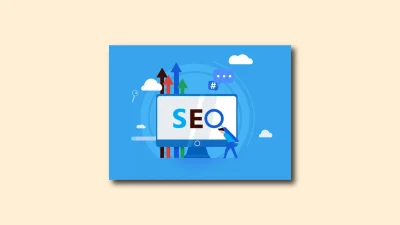SEO content length

By SEO content length, SEO consultants often mean: how long should a page’s text be to rank in the top 3 search results? There has never been a clear answer to this from Google. For this reason, content length is an oft-discussed topic among SEO specialists.
However, Google’s John Mueller has often said the following in his Google Webmaster edits on YouTube:
”The more content, the more information it can contain and the more interesting it is to a searcher.”
An important note here though: don’t go blindly creating as much content as possible. The quality of content is more important than its quantity. Therefore, one of Google’s most important ranking factors is also usability. Your content must be relevant to the visitor. Google places a high value on that.
A lower limit
The most commonly discussed lower limit for the length of SEO content on a page is about 300 words. Often specialists indicate to be between 300 and 500 words. This is to get into the top 10 (on page #1) within Google. To actually generate a lot of organic traffic from Google, everyone naturally wants to get inside the top 3. (1)
A large-scale study was done from Ahrefs to investigate how many words pages contain that rank in the top 3. This research revealed that there is a direct correlation between the number of words on a page and its position within Google.(2)

First, rarely was a page found within the top 10 that had fewer than 200 words. This means that, according to this study, the lower limit is toward 200-300 words. Also, this research shows that the top 3 positions had more than 900 words.

Looking for SEO content support?
I help organizations optimize content for SEO. Please contact me for this via the contact form.
Web pages at No. 1 have more than 1,300 words. This is about 4 times the lower limit given by many marketers. As an expert within your field, make sure you produce a lot of quality content. This expresses your expertise within your industry. Keep in mind that it is really about the quality, not the quantity of the content. (3)
- Patel, N. (2023, November 3). How to Determine the Best Content Length for SEO. Neil Patel. https://neilpatel.com/blog/best-content-length-seo/
- Hardwick, J. (2023, May 12). How long should blog posts be? The ‘Truth’ about content length. SEO Blog By Ahrefs. https://ahrefs.com/blog/blog-post-length/
- Creating Helpful, Reliable, People-First Content | Google Search Central | Documentation | Google for Developers. (s.d.). Google For Developers. https://developers.google.com/search/docs/fundamentals/creating-helpful-content
Frequently Asked Questions
What is SEO content length?
There is no exact length for SEO content. It is more important to focus on the quality of the content and its ability to meet the user’s needs than on the length of the content.
However, there are some guidelines that can help optimize content length for search engine optimization (SEO). Generally, content of 300-500 words is considered short, 500-1000 words is considered medium, and over 1000 words is considered long.
Long content can offer search engine optimization benefits, such as a higher chance of earning backlinks and better performance in search results. But content length should never come at the expense of quality. It is important to create content that offers value to the reader and is relevant to the search query.
What is the impact of SEO content length on SEO?
While content length can play a role in search engine optimization (SEO), it is not the only factor that affects a page’s ranking in search results. There are many other factors that search engines use to judge the relevance and quality of a page, including the quality of its content, its relevance, links from other sites and technical aspects such as loading speed and mobile friendliness.
While it is true that longer content can provide some benefits for SEO, such as naturally including more keywords and earning more backlinks, it should not be forgotten that the quality of the content is still most important. It is more important to create content that provides value to the reader, is relevant to the search query, and is of high quality, than to focus solely on content length.
It is therefore better to aim for shorter, but relevant and high-quality content, than to create longer content that is less relevant or of lower quality. In short, content length is not the most important criterion for SEO and it is important to focus on the quality of the content and its relevance to the user.
What is the optimal length of SEO content?
There is no set optimal length for SEO content, as content length depends on several factors, such as the purpose of the page, the topics being covered and the needs of the user. Instead of focusing on a specific length, it is more important to provide quality content that answers the user’s questions and provides value to the reader.
That said, studies suggest that long content often performs better in search results. Research has shown that pages that rank higher in search engines on average have longer content than pages that rank lower. Another study has shown that pages longer than 2,000 words perform better in search results than pages with fewer than 2,000 words.
While longer content sometimes performs better in search results, content length should not come at the expense of quality. It is important to create content that is relevant, useful and well-written. High-quality content will not only perform better in search results, but will also generate more user engagement and interest.
What happens if the length of my SEO content is too short?
If the length of your SEO content is too short, it can negatively affect the performance of your page in search results. Pages with little content can appear less relevant and valuable to users and search engines, which can lead to lower rankings in search results.
Pages with too little content may also contain fewer keywords, which can make it harder to stand out in search results for certain searches. This can limit traffic to your page and reduce visibility in search engines.
In addition, the lack of content can also affect the user experience. Users looking for information may be disappointed if they find little content, making them more likely to leave the page. This can lead to a higher bounce rate and lower user engagement, which can ultimately lead to a lower ranking in search results.
In short, it is important to make sure you have enough content on your page to ensure that it is relevant and valuable to users and search engines. While there is no set optimal length for SEO content, it is important to aim for high-quality content that is relevant and useful to the user.
Can I hire a specialist to write SEO content of the right length?
You can hire an SEO specialist to help you write SEO content of the right length and quality. An SEO specialist can advise you on the optimal content length depending on the topic, target audience and keywords you want to target.
An SEO specialist can also help you write content that meets search engine requirements while being useful and valuable to users. They can advise you on the proper placement and density of keywords, and can help you write titles, meta descriptions and headlines that are attractive to users and search engines.
If you’re looking for an SEO specialist to help you with your content, it’s important to make sure they have experience writing SEO content and are up to date on the latest developments in search engine optimization. Make sure you have clear expectations about the content you want to produce and the goals you want to achieve with your content so that the specialist can support you in the best way possible.
How do I calculate the length of my SEO content?
The length of your SEO content is usually determined by the number of words you have written. You can easily calculate the word count of your content by copying and pasting your content into an online word counter or a text editor such as Microsoft Word.
For example, if you have written a blog post and want to measure it, select all the text in the blog post and copy it to your computer’s clipboard. Then paste the content into a word counter or text editor to count the number of words.
Keep in mind that the length of your SEO content is not the only factor that affects the performance of your page in search results. It is important to make sure that your content is also relevant, useful, high quality and meets the user’s needs. Also, make sure you include keywords naturally in your content and that you have a good internal link structure to improve the user experience and make your content easier to find for search engines.
Can the length of SEO content also be too high?
The length of SEO content can also be too high. While long content can often be positive for search engine optimization (SEO), content that is too long can be harder to read and less relevant to users.
Content that is too long can be overwhelming and tiring for users to read and can increase the likelihood that they will drop out before fully reading the content. This can lead to a higher bounce rate and lower user engagement, which can ultimately lead to a lower ranking in search results.
In addition, content that is too long can also be less relevant to the user’s search query. If the content is too long and deviates too much from the topic the user is looking for, it can lead to a poor user experience and less traffic to the page.
So it is important to ensure a good balance between the length of the content and its relevance and quality. It is better to aim for high-quality content that is relevant to the user’s search query, even if that means the content is a bit shorter. This will not only improve the user experience, but can also contribute to higher rankings in search results.
Does it matter if my SEO content is high quality or is content length more important?
The quality of your SEO content is much more important than the length of the content. It is better to strive for high-quality content that is relevant, useful and valuable to users than to focus on content length.
While it is true that long content sometimes performs better in search results, this does not mean that long content is automatically of high quality. In fact, long content with no value to the user may perform worse than shorter, high-quality content. Search engines today are increasingly able to distinguish quality content from low-quality content.
Therefore, it is important to focus on the quality of the content and ensure that it answers the user’s questions, is relevant to the search query, and is of high quality. High quality content will not only perform better in search results, but will also increase user engagement and interest, ultimately leading to more traffic and better performance of your page in search results.
In short, it is important to strive for high-quality content that is relevant, useful and valuable to the user, regardless of its length.
What is the maximum length of a meta description?
The maximum length of a meta description (also called “meta-description”) is about 155-160 characters, including spaces. You must take care to stay within this limit to ensure that your meta description is fully displayed in search results and other relevant contexts. It is important to make sure your meta description is clear, catchy and contains the most important information about your page to entice users to click through to your website.
Does a meta description impact my website’s ranking?
In general, a meta description has no direct impact on your website’s ranking in search engines, such as Google. In fact, Google has stated that the content of a meta description is not a ranking factor.
That said, a good meta description does indirectly contribute to a higher click rate (CTR) and a better user experience, which in turn can lead to a higher ranking. A well-written meta description can convince users to visit your website instead of your competitors’, even if your competitors are ranked higher than you. Therefore, it is important to make sure your meta description is clear, attractive and contains the most important information about your page to entice users to click through to your website.
Can a meta description be too short?
Yes, a meta description can be too short. The recommended length for a meta description about 155-160 characters, including spaces. If your meta description is shorter than this limit, you run the risk of not being able to include all the important information about your page and users may not be convinced enough to click through to your website.
A too-short meta description can also signal to search engines that the content on your page may not be sufficient to satisfy users and can therefore affect your ranking. So make sure your meta description contains at least a few sentences and communicates the most important information about your page in a clear and concise way.
How do I write a good meta description?
A good meta description is important because it attracts potential visitors to click through to your website. Here are some tips for writing an effective meta description:
- Be concise and relevant: limit yourself to about 155-160 characters, including spaces, and make sure the description contains relevant information about your page.
- Use action-oriented language: use words such as “discover,” “learn,” “view” and “compare” to encourage the user to click through to your website.
- Put the most important information up front: put the most important information about your page at the front of the meta description to make it more noticeable and encourage users to click through sooner.
- Provide a unique and attractive description: make sure your meta description is unique and stands out among other search results. A catchy, unique description can help generate more clicks to your website.
- Avoid using duplicate content: copying and pasting the same meta description for multiple pages on your website can lead to duplicate content, which can be detrimental to your website’s ranking.
- Use keywords: although keywords in the meta description do not directly affect ranking, they can help clarify the relevance of your page to the user’s search query.
By following these tips, you can write an effective meta description that grabs users’ attention and encourages them to click through to your website.
Is it wise to have my meta descriptions written by an expert?
It is always a good idea to have your meta descriptions written by an expert, especially if you are not sure how to write effective descriptions. An expert can help you identify the most important aspects of your page and communicate them in a clear and concise way in your meta descriptions.
An expert can also take into account the latest best practices for writing meta descriptions and make sure they meet search engine guidelines. After all, a well-written meta description can make the difference between a user clicking through to your website and one who doesn’t.
If you choose to hire an expert to write your meta descriptions, make sure you choose someone with experience in your specific industry and who understands how your target audience searches for information on the Web. This will ensure that your meta descriptions resonate well with your target audience and are effective in attracting traffic to your website.





